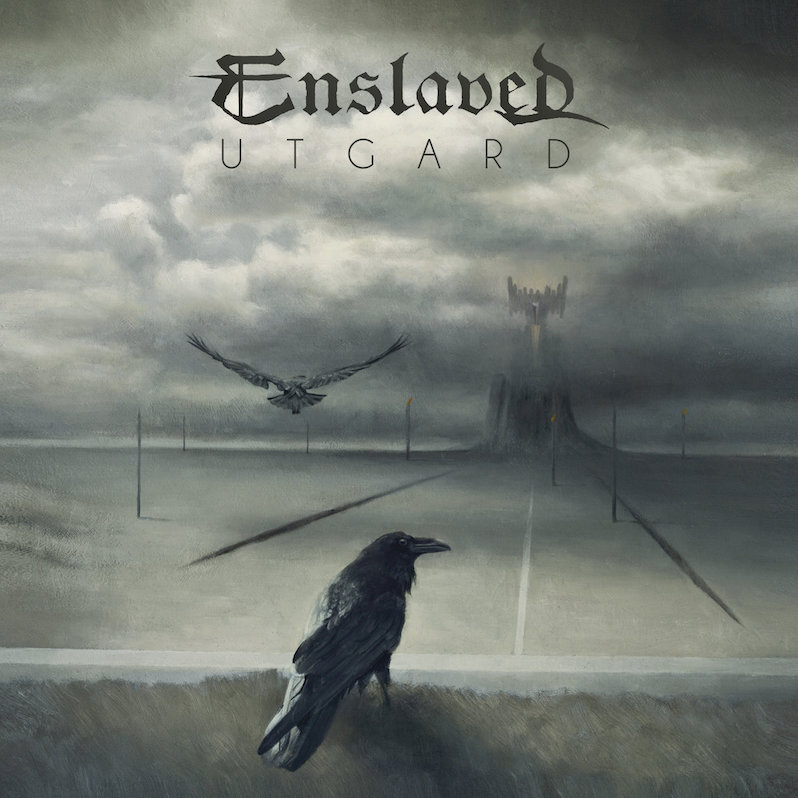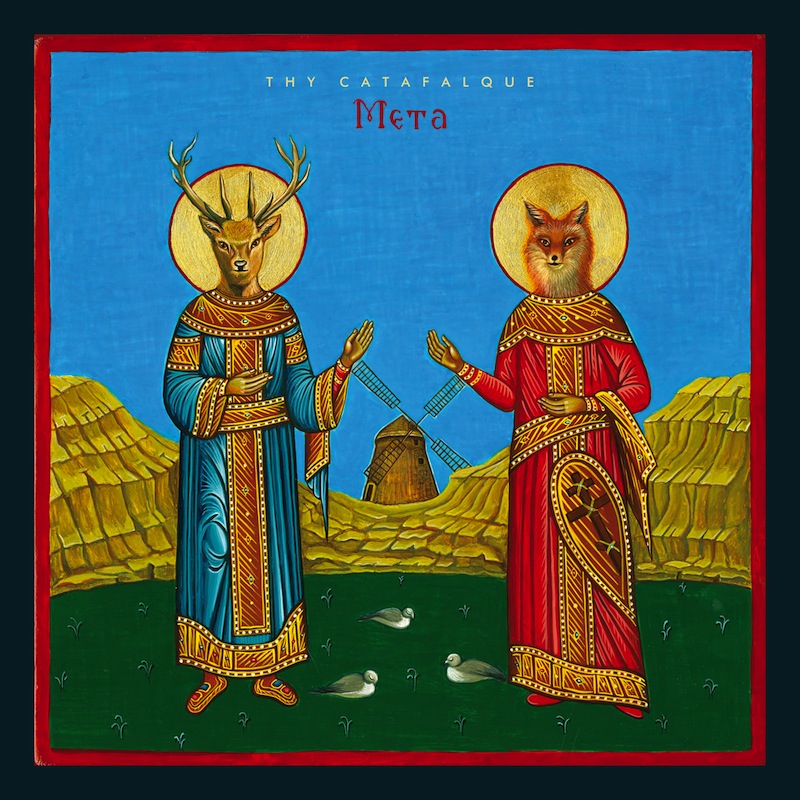Enslaved : Utgard

In retrospect, I’m not sure any of us could have anticipated just how much impact Enslaved‘s cover of Royksopp’s “What Else Is There?“, the bonus track that closed out their previous LP E, was to have on the band’s sound. Fifteen albums into their career, it’s natural to assume that bands calcifiy in their sonic approach, the highly experimental middle period of their careers giving way to some interior voice that tends to break through over time. After all, despite the ever-shifting palettes, you can spot a Bowie record from a mile away, and a Trent Reznor record too; it is no sleight against their experimentalism that they eventually come to resemble some specific image. And certainly Utgard still contains many now-known Enslaved-isms, especially of the brand the group seems to have been exploring most diligently from RIITIIR onward, a remarkable fusion of the progressive rock most associated with groups like Gabriel-era Genesis and the vast and cerebral spans of the more proggy wing of Bathory’s work, especially near the end of Quorthon’s mighty career.
But suddenly there emerges on Utgard, or at least reveals itself, a series of curious strands: post-punk, krautrock, and more, elements which have certainly become en vogue with certain other widely-acclaimed progressive black metal (or at least black metal adjacent) acts in recent years but not ones we would necessarily associate with Enslaved themselves. That is, of course, until you take that now-prescient Röyksopp cover into perspective, a parting shot on their previous record, their first with a new keyboardist on a record that seemed awfully light on the instrument given their recent inclinations, where suddenly the new guy got to cut loose with dense and luscious layers of synthesizers. It seems in retrospect that this was the tentative on-boarding moment of the new player, a sensation of a door opening, one that Utgard takes full advantage of.
These songs suddenly feel substantially more youthful and vivacious that the typically august and magisterial Enslaved have been for quite some time, but without sacrificing the enormity or sacred splendor they’ve become so well-attuned to evoking since as far back as Monumension. What’s especially fascinating about this is that while E featured the on-boarding of a new drummer, their first lineup change in almost 15 years at that point, Utgard likewise features a new drummer, filling the shoes of the mighty Cato Bekkevoid, a drummer who’s sharp but sensitive chops were absolutely fundamental in navigating the waters of increasingly progressive and decreasingly black metal waters. The group seems well-aware of this new lease on life, new creative blood pouring into the well, and take full advantage of it rather than collapsing into a safe conservative approach to their own polymorphic approach to the genre.
Shockingly, despite this being perhaps their most stridently proggy record maybe ever, it also showcases the most tight and concise songwriting of the group ever, literally sporting the shortest average runtime per song of their entire career. Despite these shorter lengths, the songs are no less packed with life and movement; if anything, the deep post-punk influence that seems to be bursting below the surface here seems to have tightened up their songwriting exponentially. They still keep the trance-inducing cascading riffs that wash over you like a psychic eraser, the primal pounding of dance music and the constancy of eighth notes, deeper but shorter, the same effect in half the time (or less).
This seems to be a radical about-face from In Times, a record that was met with mixed reactions critically, some praising the depth of the composition while others felt frustrated at the extended lengths some of the ideas were drawn out to. The quality of ideas on Utgard is as high as ever, but given the hastened clip at which they travel through them, it becomes increasingly preposterous that anyone would complain about them being dragged out. Enslaved punch and kick like pups these days, but with the wisdom of age and hours of composition under their belts. It amounts to the best record the group has released in some time, at least since RIITIIR (still the high-water mark of their career in my estimation), though fans who found themselves falling off around the era of Ruun and Vertebrae may suddenly find more fat to chew on these days than in the past decade or so of the band’s life.
Label: Nuclear Blast
Year: 2020
Langdon Hickman is listening to progressive rock and death metal. He currently resides in Virginia with his partner and their two pets.




